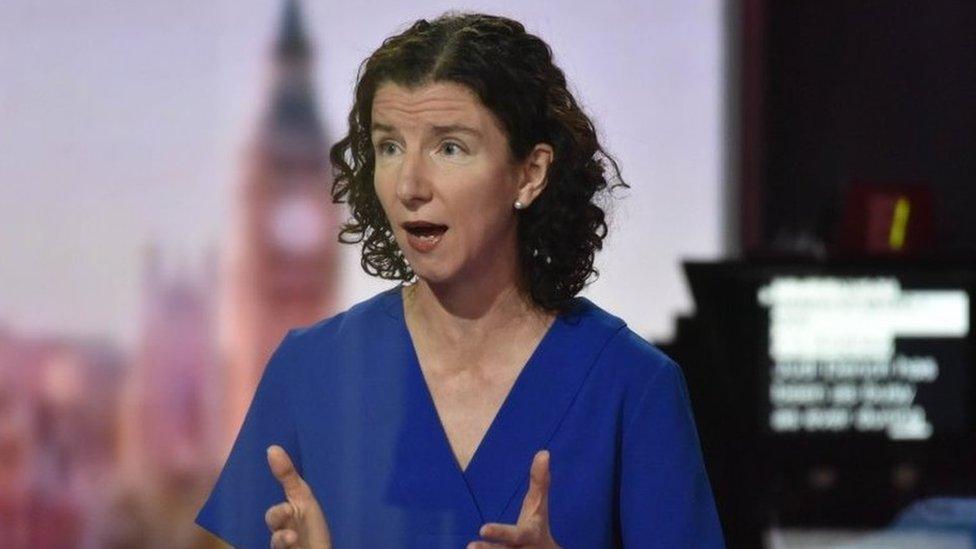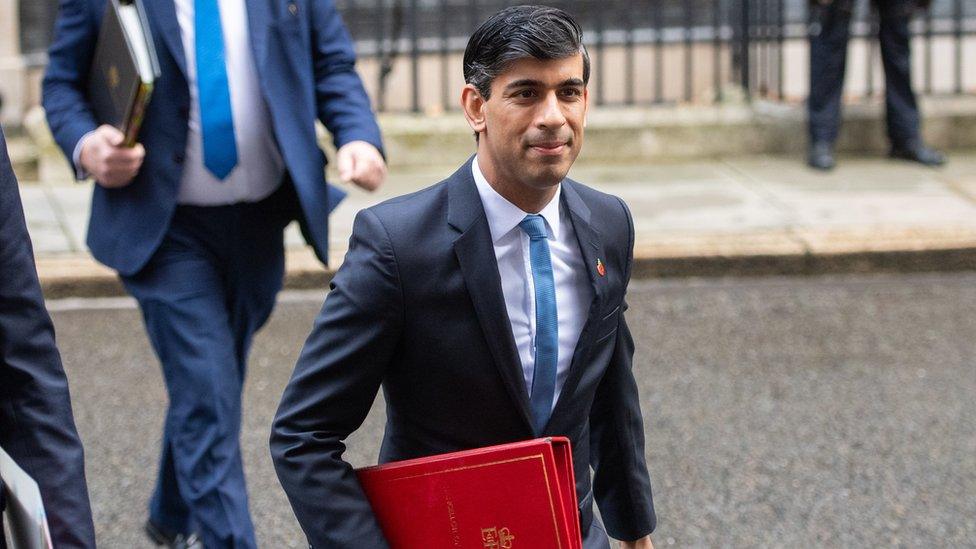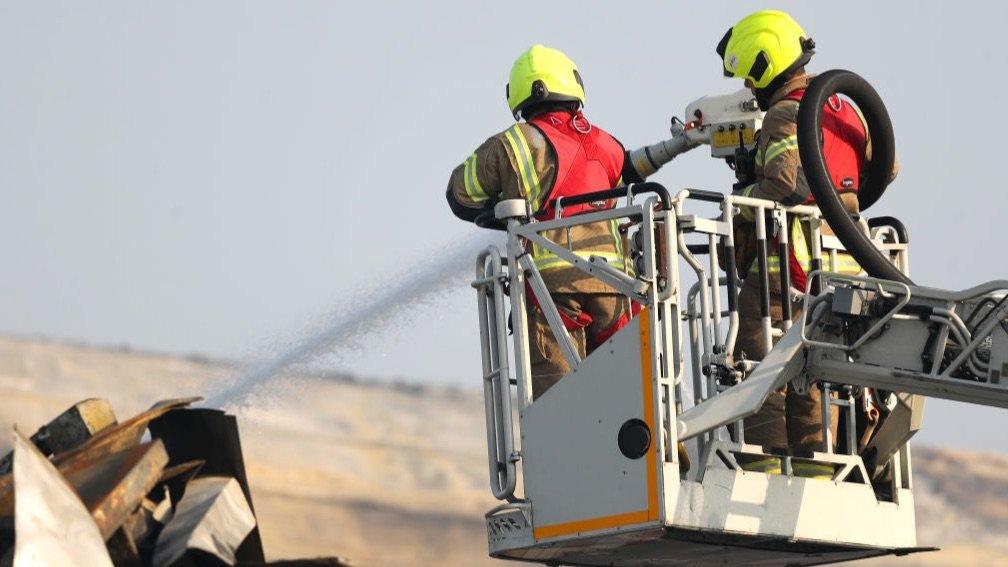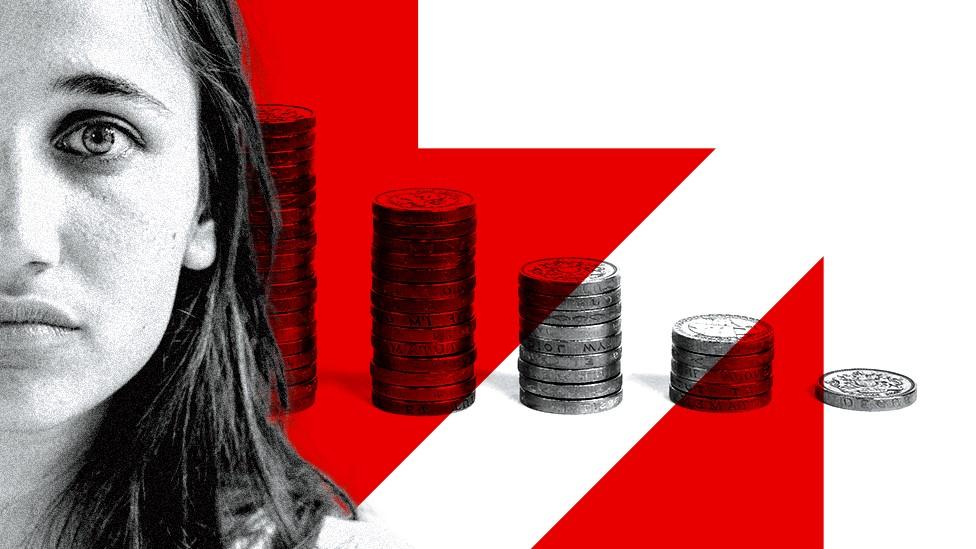Freezing public sector pay will damage Covid recovery warns Labour
- Published

Teachers are among workers who could face a pay freeze
A freeze on public sector workers' pay would damage the country's economic recovery, the shadow chancellor will warn in a speech on Monday.
Chancellor Rishi Sunak needs to find ways to protect public finances after borrowing large amounts to fight Covid.
He declined to say if he would consider freezing public pay but added that it had to be considered in "the context of the overall economic climate".
On Wednesday Mr Sunak will set out government spending for the next year.
One think tank, the Centre for Policy Studies, has suggested a three-year pay freeze across the public sector could save up to £23bn.
But in a speech on Monday, Ms Dodds will argue that "freezing the pay of firefighters, hospital porters and teaching assistants will make them worried about making ends meet ahead of Christmas - that means they'll cut back on spending and our economy won't recover as quickly.
"The British people shouldn't have to pay the price for a government that doesn't know the value of public money, splurging it on outsourced contracts to Tory-linked firms that don't deliver."
Frances O'Grady - head of the Trades Union Congress - also expressed concern, telling Sky News: "We saw ministers join millions of us clapping firefighters, refuse collectors, social care workers - I don't think this would be the time to reward them with a real pay cut.
"This is not smart politics, it is morally obscene and it is bad economics, too," she added.
Also speaking to Sky News' Sophy Ridge On Sunday programme, Mr Sunak said he would not comment on public pay before the spending review but added that it was reasonable to consider the subject in "the context of the overall economic climate".
"We need to see what is going on with wages, jobs and hours across the economy," he said.
He insisted that the spending review would not signal a return to austerity, arguing that government spending on public services was increasing.
Government borrowing has increased massively as a result of the coronavirus pandemic and a recent estimate by the Office for Budget Responsibility says the government would have to borrow £372bn for the current financial year - that compares to the £55bn it had expected to borrow pre-pandemic.

Ms Dodds says the chancellor is to blame for the "jobs crisis"
Ms Dodds will also use her speech to say that her party would "make responsible choices" to protect the economy.
Her plan includes bringing forward £30bn in capital spending over the next 18 months to spend on the "clean industries", setting up an emergency programme to retrain workers and establishing a National Investment Bank.
She is also expected to blame Mr Sunak for blocking a 'circuit beaker' - a set of time-limited restrictions - which Labour proposed earlier this year. She will argue this led to "a longer, more painful lockdown".
"The chancellor's irresponsible choices and unacceptable delays are damaging the economy. That's why we're in the grip of a jobs crisis - and it's got Rishi Sunak's name all over it."
Speaking to the BBC's Andrew Marr show, Mr Sunak said the economy was "experiencing significant stress", adding: "I think now is the right time to focus on responding to the crisis and that means, yes we will be borrowing quite frankly an enormous sum this year to help us do that."
Defending the government's use of contracts in the fight against coronavirus, he said the government had been right, at the height of the pandemic, to "act fast" rather than relying on 60-day procurement processes.
A Treasury spokesman said: "This government's actions have protected millions of jobs and businesses across the country - including 9.6 million people on furlough and over a million companies taking government-backed loans.
"Later this week, the chancellor will set out the Spending Review, which will benefit all nations and regions of the UK, as part of our commitment to build back better."
- Published22 November 2020

- Published20 November 2020

- Published10 May 2024
